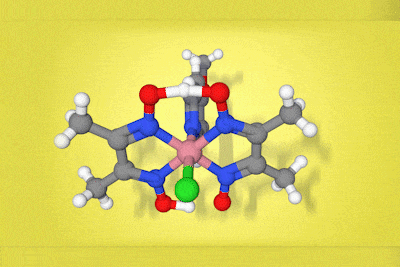Organic chemistry – Page 34
-
 Research
ResearchDwarf planet Ceres turns out to be extra-carbony
Asteroid belt’s largest object, thought to be a piece of rock, contains up to 20% carbon
-
 Research
ResearchWeird mechanism behind catnip compound’s biosynthesis uncovered
Nepetalactone – the compound cats go crazy for – is made by a two-step procedure that is unlike any other in terpenoid biosynthesis
-
 Research
ResearchDouble umpolung approach to amino amide synthesis
Unusual disconnection strategy behind stereocontrolled route to β-amino amides
-
 Research
ResearchWorld record for longest carbon–carbon bond broken
Carborane bond surpasses previous longest bond after just nine months in the top spot
-
 Research
ResearchErythropoietin benefits from controlled sugar-coating
Click chemistry allows glycosylation at virtually any synthetic stage
-
 Research
ResearchRobotic organic synthesis to make reproducibility simple in chemistry
Chemputer claims universality after making three drugs without human intervention
-
 Research
ResearchComputation trick cuts total synthesis from 27 to nine steps
Quantum mechanical modelling shows speedy route to terpene natural product
-
 Podcast
PodcastPropanethial-S-oxide: how chopping onions makes you cry
Kat Arney’s investigation of the pungent chemical in onions is enough to bring tears to your eyes
-

-
 Research
ResearchPhosphorus beats palladium in connecting nitrogen rings
An entirely metal-free reaction goes where no traditional cross-coupling has gone before – to link pyridines
-

-
 Research
ResearchCocrystal intermediate is first for mechanochemistry
In situ Raman spectroscopy reveals how reactants align prior to forming new bond
-
 Podcast
PodcastLevulinic acid
How one footballer's climate concerns led to the creation of a green chemistry company: the story of Mathieu Flamini, GFBiochemicals and levulinic acid.
-
 Research
ResearchHidden gene cluster unearthed to reveal antibacterial natural product
Scientists encourage soil microorganisms to express themselves
-
 Research
ResearchPropeller molecule acts as chirality sensor for solvents
Unusual chiral induction phenomenon observed in a molecular system
-
 Research
ResearchBond-breaking reaction chops up wood chemical
Reaction that splits biphenols in two could convert lignin into useful chemicals
-
 Research
ResearchWaste vegetable oils turned into chemicals for drugs and plastics
Dual catalytic system converts complex carboxylic acids into terminal alkenes
-

-
 Research
ResearchFirst four-twist aromatic molecule made
A di-palladium complex with 54 π electrons is the first quadruply twisted aromatic molecule
-
 Podcast
PodcastCaryophyllene
A biologically active compound from the biblical balm of Gilead, said to ‘heal the sin-sick soul’ and mentioned at the marriage of Prince Harry and Meghan Markle